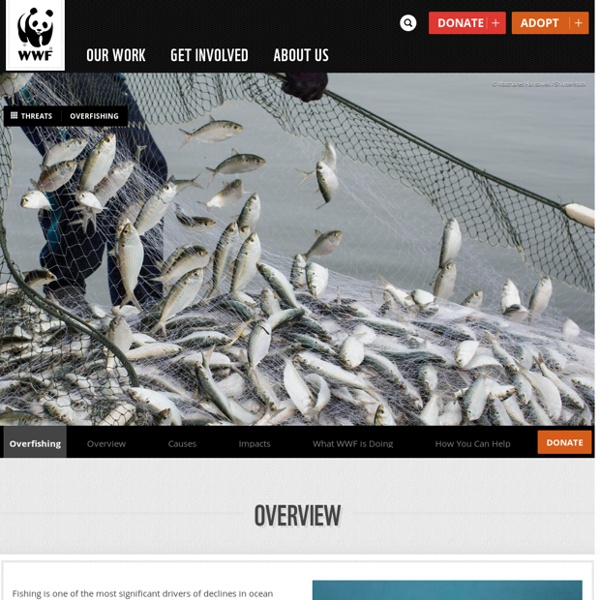What is Overfishing? Facts, Effects and Overfishing Solutions

Fisheries Campaign - Australian Marine Conservation Society
Australia is home to some amazing marine wildlife, much of which is found nowhere else on the planet. Our ocean is a global biodiversity hotspot. We have over 320 different species of sharks and rays, and 70 of these species are unique to Australia, found nowhere else on earth! Unfortunately, commercial fishing using trawlers, gillnets and longlines puts our ocean wildlife at risk. Overfishing of once abundant species has led to some species being listed as threatened, such as gulper and school sharks, because they have been fished too hard for too long. In a world with an ever-expanding population, we need to ensure that we maintain healthy oceans while we’re taking from the sea, so that we can ensure a future full of fish for generations to come.
Mercury levels: Climate change and overfishing are increasing toxic mercury levels in fish
Mercury levels in the seafood supply are on the rise, and climate change and overfishing are partially to blame, according to a new study. Scientists said mercury levels in the oceans have fallen since the late 1990s, but levels in popular fish such as tuna, salmon and swordfish are on the rise. According to a new study by Harvard University researchers in the journal Nature, some fish are adapting to overfishing of small herring and sardines by changing their diets to consume species with higher mercury levels. Based on 30 years of data, methylmercury concentrations in Atlantic cod increased by up to 23% between the 1970s and the 2000s. It links the increase to a diet change necessitated by overfishing. But overfishing isn't the only contributor to higher mercury levels in fish. The study also found that mercury levels in Atlantic bluefin tuna have increased by an estimated 56% due to seawater temperature rise since 1969. But mercury levels in fish have not fallen as expected.
Overfishing: Can We Ever Reverse the Damage We’ve Done?
The global numbers regarding fishing have gone from sustainable to straight-up devastating in just a few decades. Now, the creatures of the water have to fear about two more things in addition to human-made disasters - the rising water temperatures and plastic. There is no harm in fishing. It actually helps the marine ecosystem by keeping the aquatic population in check. But there is a difference between justified consumption and exploitation. In just half a century, over-fished stocked grew triple its size. Even if one species of fish gets wiped off from the earth, it is going to have a very drastic effect on the marine ecosystem. Defining overfishing is simple. Man’s desire to catch rare and magnificent forms of fishes began when we started to conquer the waters. Whaling saw a rapid rise in the mid-19th century, where we embarked on a journey to find blubber. Two years later, in 1929, the number of whales killed rose to 40,201. These are hard cap limits that are fishers must obey.
Fishing for Answers: How Marine Wildlife and Commercial Fishing Overlap
Oceana's new report shows the overlay of fishing activity with tagged blue sharks, demonstrating a cutting-edge approach to study the impacts of commercial fishing activities on marine wildlife and opening the door to inform future conservation and management efforts. Oceana teamed with shark researchers Dr. Austin Gallagher (Beneath the Waves) and Dr. Neil Hammerschlag (University of Miami) to tag ten blue sharks off the East Coast of the United States in June 2016. Satellites collected and relayed the location information of the tagged sharks over the 110-day reporting period. Read the Press Release
Related:



